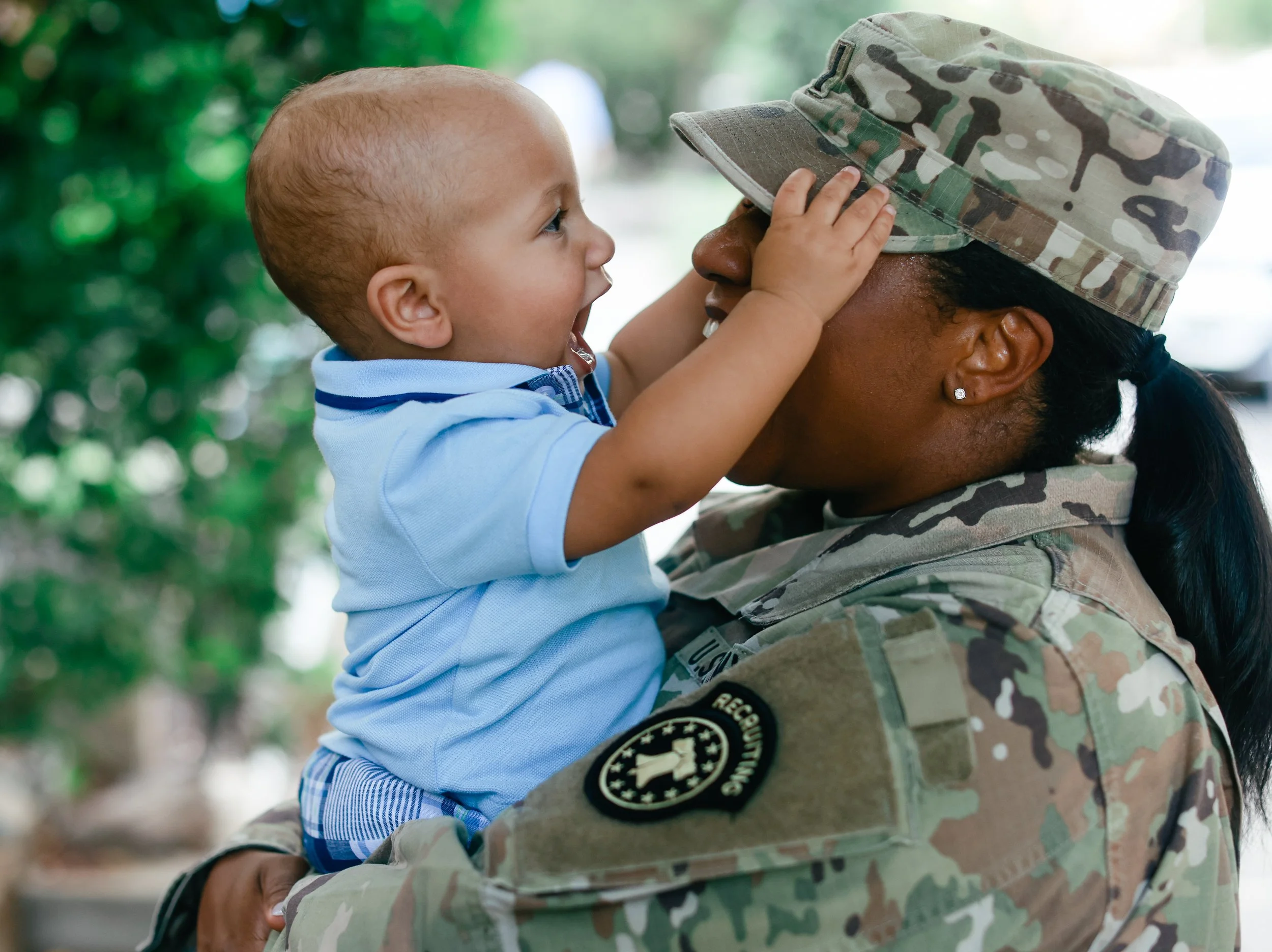Leading While Black and a Mother
What It Means to Be a Black Woman in the Military
I joined the military at a time when Soldiers could still drive around with Confederate flag bumper stickers on the backs of their cars; promoting the mindset that it represented southern culture, instead of the white supremacy that it truly was. Nobody that I know, said one word about it.
Having Georgia be assigned as my first duty station was a blessing and a curse. A blessing because it was only a few short hours away from my parents. And it was a curse because it was more of the racism disguised as culture that I grew up around.
I grew up in South Carolina. For the longest time, the confederate flag flew over the state house. I was familiar with the rightful anguish and frustration from the Black community throughout that time. So, I knew exactly what that flag stood for. But what could leadership really say to make me feel seen in an environment that was silently hostile — something that could truly make me feel accepted as a valued member of a team?
Nothing, really.
I didn’t speak up. I wondered if my silence made them think it didn’t bother me.
The truth? It sat heavy on my spirit. That early experience is a scar and a stamp. A wound and a badge. It’s one I carry in my "leadership toolbox"—as we say in the Army.
That experience, amongst many others, taught me how to survive as a Black woman in the military. How to navigate rooms where I’m silently questioned. How to stand firm when I’m underestimated. And in today’s age, those scars and stamps reveal to me how far we’ve come in the military: now, that kind of outward extremist demonstration is finally prohibited (in our military). There is still a lot of work to be done and progress that needs to be made.
Still—resilience has been a survival skill for me, not a leadership perk or characteristic.
Lessons Learned: When Black Womanhood, Leadership, and Motherhood Collide
Let’s be honest: nobody understands this type of resilience and what it’s like to be a Black woman in leadership; nobody but other Black women.
There’s a certain mental math we constantly do; a formula that we will never understand:
speaking directly = aggressive
showing strength = bully and not empathetic
hard = coldhearted
I’ve been there. I remember being in a specific duty position where (again) I found myself to be the only Black female leader. I did my job well despite the challenges (there were many). I was doing the same things my male peers were doing—but my approach was called “belittling.” My authority “too strict.” Why?
Because I wasn’t acting like what they thought a woman should act like. And more deeply—because I wasn’t acting like what they thought a Black woman should act like. I didn’t fit the mold and stay within their expectations.
Some called it ghetto. Some said I lacked “emotional intelligence.”
But I’ve learned: you cannot separate how you know to be a woman from how you know to be Black.
That’s why empathy wasn’t my strong suit. I came in hardened by war and pressure. I thought I had to be tough—especially on young women. I thought that’s what women of color in leadership had to do; I thought it was my responsibility to harden them for what was to come.
That was a mistake.
Pregnancy shifted everything for me. It shattered the shell I thought was leadership.
People assume motherhood softens your ambition. But for me, it sharpened my clarity.
Strategies for Black Military Moms Leading with Authenticity
Here’s what I want other Black mothers in the military and women in supervisory roles to know:
1. Stop minimizing your intersections.Your identity is your strength. It holds insights no one else can replicate. It’s not a weakness to lead as a Black mother in the workplace—it’s your greatest advantage.
2. Use empathy as your armor, not your absence.Don’t let trauma shape your tone. Let healing shape your leadership. Empathy in leadership is not a luxury; it’s a necessity for those who have endured multiple systems of pressure.
3. Lead with cultural fluency.Don’t dilute your language, your mannerisms, or your roots to fit in. Your authentic leadership is the only kind that builds real trust.
4. Honor your complexity—out loud.Let them know what it took for you to show up. That’s not complaining—it’s context. It inspires more than you’ll ever know, and it helps other women of color in leadership breathe easier. It helps them believe that they can show up being themselves as well.
5. Build your own table of support.No one makes space for us. We build the space, bring the chairs, and still pour the water. You don’t need permission to be powerful—you need the community to stay powerful.
Why it Matters: Redefining Success as a Military Mom
I no longer shrink my story. i start with it. I lead with it.
Because no one who isn’t a woman, isn’t Black, and isn’t a mother can see what I see—or lead the way I lead.
You are not too much. You are exactly others need to see in leadership.
Want More?
Subscribe to my newsletter for honest reflections, leadership strategies for women and mothers, and a community that gets it.


